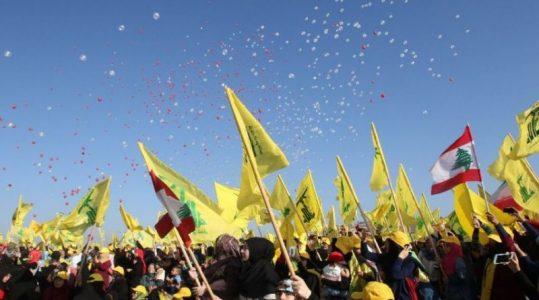
US sanctions ISIS network after Kurdish counter-terror raids in coordination with the Iraqi and coalition forces
On Wednesday, the Office of Foreign Assets Control (OFAC) of the US Treasury Department imposed sanctions on Afaq Dubai, which it described as an “Iraq-based money services business that has been moving money for ISIS [Islamic State(IS)].”
The OFAC sanctions follow raids conducted in Erbil and Baghdad over a three-day period, from October 6 to October 9.
Assisted by the US-led Coalition, formally known as Combined Joint Task Force Operation Inherent Resolve (CJTF-OIR), Kurdish Counter-Terrorism Forces and Iraqi Special Operations Forces made multiple arrests of individuals from the “al-Rawi financial network” involved in providing support to ISIS, as CENTCOM reported on October 11.
On October 16, Col. Sean Ryan, CJTF-OIR Spokesman, began his regularly-scheduled briefing by hailing the raids and arrests.
“Last week a joint operation was conducted by Iraqi Special Forces and the Kurdish Counter-Terrorism Forces, with some assistance of Coalition Forces,” Ryan said.
“This operation resulted in the arrest of 10 members of the al-Rawi financial network, a key ISIS financial facilitation group based in Iraq,” he stated.
The Kurdish Forces that carried out the raids are formally known as the Counter Terrorism Department (CTD), which is “the primary organization in the Kurdistan Region Security Council (KRSC) gathering, analyzing and integrating intelligence on international and domestic terrorism, including activities by extremist groups,” the KRSC’s website explains.
Eight of the arrests of those involved the al-Rawi network took place in Erbil, while the other two individuals were detained in Baghdad.
It is unclear why US officials changed the name they used for the group from the “al-Rawi financial network” to “Afaq Dubai.” Possibly, the change reflects information learned as a result of the raids, a retired US intelligence official suggested to Kurdistan 24.
In any event, OFAC emphasized that Afaq Dubai is an Iraqi-based network and has no ties to Dubai.
However, the name first used by US officials—the al-Rawi network—strongly suggests the Iraqi nature of the group, and, specifically, its Sunni Arab character.
Rawa is a town in western Iraq, along the Euphrates river, some 100 kilometers east of the Syrian border town of Albu Kamal (at which Iran recently launched six missiles, in retaliation for the attack on a military parade in Ahwaz last month.)
“Al-Rawi” is a common name for people from Rawa, and numerous individuals with that name have appeared on OFAC’s sanctions list.
In December 2016, OFAC designated Fawaz Muhammad Jubayr al-Rawi and his company, the Hanifa Currency Exchange in Albu Kamal, for financing IS. Rawi joined IS in 2014, OFAC explained and then hosted IS leaders, including top-level commanders “at his farm in Albu Kamal for weekly meetings.”
In June 2017, Rawi was killed in a coalition airstrike.
Saif al-Din Fulayyih Hassan Taha al-Rawi was the first of his namesake to be placed on OFAC’s sanctions list—in August 2003, shortly after Operation Iraqi Freedom began, as the Bush administration started, slowly, to recognize that it was facing organized violence in Iraq.
Saif al-Din was the Chief-of-Staff of Iraq’s Republican Guard. He was also among the high priority individuals on the “deck of cards” who were slated for arrest. To this day, however, he remains at large.
In December 2007, OFAC designated another al-Rawi—Fawzi Mutlaq—for his role in “providing financial and material support to AQI (al Qaida in Iraq, ISIS’ predecessor.)
OFAC described Fawzi Mutlaq al-Rawi as “Chairman of the Iraqi Wing of the Syrian Ba’ath Party,” appointed to that position in 2003 by Syrian President Bashar al-Assad and resident in Damascus.
In 2005, Fawzi Mutlaq “facilitated the provision of $300,000 to members of AQI,” OFAC charged.
“In addition, he provided AQI with vehicle-borne improvised explosive devices, rifles, and suicide bombers at the request of a senior AQI leader in Iraq,” OFAC’s statement continued.
“The Iraqi wing of the Syrian Ba’ath Party” has “provided significant funding to Iraqi insurgents at [Rawi’s] direction,” OFAC explained, and he “is supported financially by the Syrian government and has close ties to Syrian intelligence.”
Six other Iraqis based in Syria were also placed on OFAC’s list then. Stuart Levey, Under Secretary for Terrorism and Financial Intelligence, warned, “Syria must take action to deny safe haven to those supporting violence from within its borders.”
Syria, however, did relatively little to address the US complaints.
Writing in 2010, Matthew Levitt, a former deputy assistant secretary for intelligence and analysis at the Treasury Department, noted, “Syrian support for insurgents and terrorists” remains “an attractive option,” given “the relatively strong return on minimal financial investment.”
Source: Kurdistan





